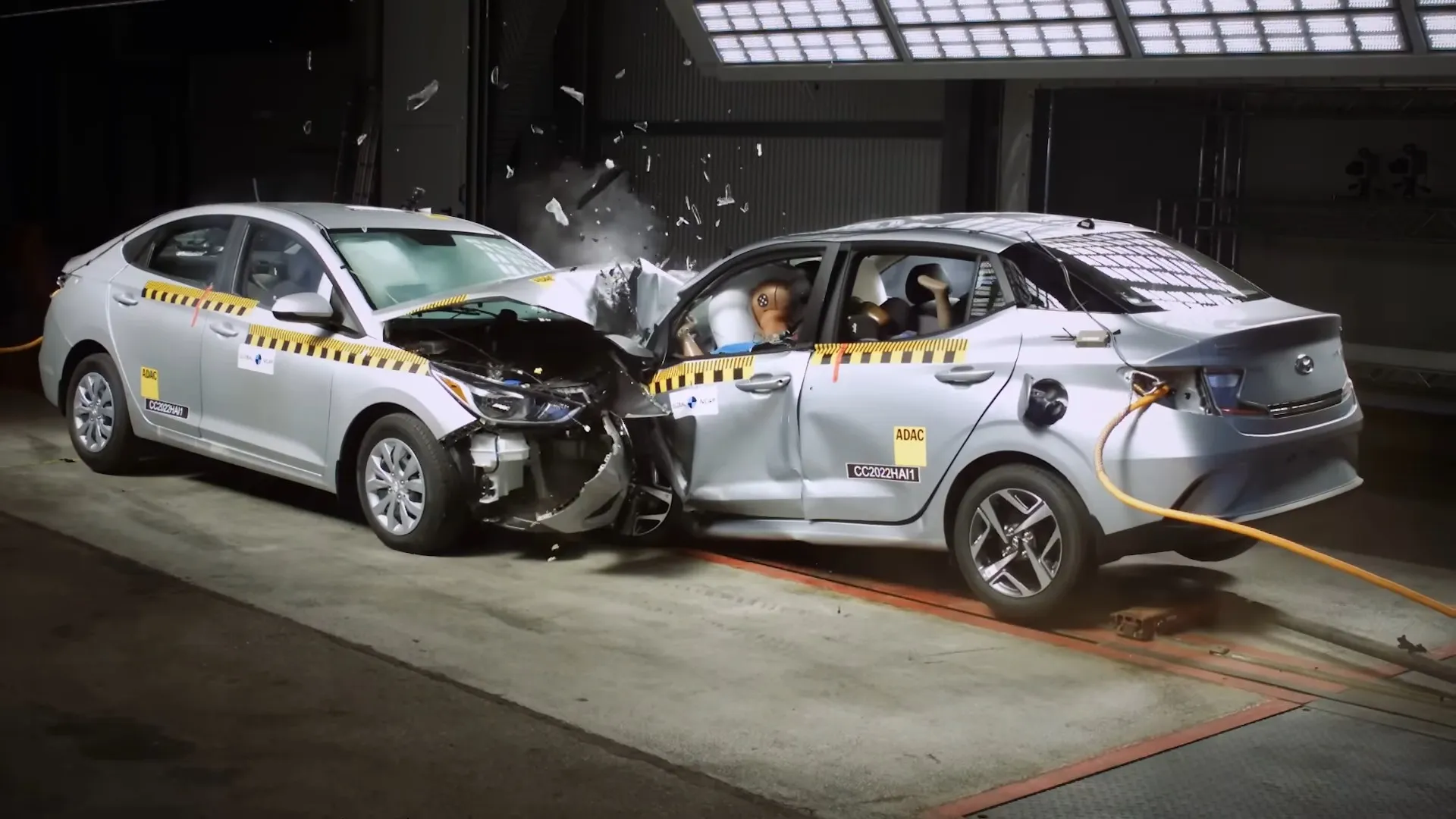GB T31485 Fuel Cell Vehicle Safety Crash Testing
The GB/T 31485 standard is a critical component in ensuring fuel cell vehicle safety. This stringent protocol sets the benchmark for crash testing, which simulates real-world vehicular impacts to evaluate structural integrity and occupant protection. The tests are designed to assess how well vehicles can withstand severe collisions under various conditions, providing crucial insights into potential improvements needed in design and materials.
Crash testing is a multifaceted process that involves the use of specialized equipment and controlled environments to replicate vehicular accidents accurately. In the context of fuel cell vehicles, these tests are particularly important due to their unique safety considerations. These include not only ensuring structural integrity but also protecting against potential hydrogen leaks or other hazards associated with fuel cell technology.
The testing protocol typically begins with careful preparation of the specimen vehicle, which is then subjected to controlled impacts using crash dummies and sophisticated sensors. The objectives are twofold: first, to measure the performance metrics prescribed by GB/T 31485, such as energy absorption rates and structural deformations; second, to gather data that can be used for continuous improvement in vehicle safety standards.
Upon completion of each test run, comprehensive analysis is conducted using advanced software tools. This includes detailed examination of the crash dummies’ responses, which provide critical information about occupant safety during impact. Additionally, post-collision inspections are performed to assess structural damage and identify any areas where modifications might be necessary.
Our laboratory adheres strictly to international standards such as GB/T 31485 when conducting these tests. By doing so, we ensure that every aspect of the testing process meets the highest level of accuracy and reliability. Our experienced team employs state-of-the-art technology and methodologies to provide robust data that can be trusted by industry stakeholders.
Through rigorous adherence to GB/T 31485 guidelines, we strive to contribute positively towards enhancing automotive safety standards. Our commitment extends beyond mere compliance; it encompasses proactive measures aimed at fostering innovation within the sector. By leveraging our expertise and resources, we aim to help clients navigate complex regulatory landscapes confidently while ensuring their products meet stringent safety requirements.
For those interested in learning more about how GB/T 31485 fuel cell vehicle safety crash testing can benefit your organization, please contact us today for detailed information tailored specifically to your needs.
Eurolab Advantages
- Accreditation and Credibility: Our laboratory is accredited by relevant bodies ensuring our results are recognized globally. This adds significant value to any client seeking reliable, internationally accepted data.
- State-of-the-Art Facilities: Equipped with cutting-edge equipment tailored for automotive crash testing, we offer unparalleled precision and accuracy in all our tests.
- Experienced Professionals: Our team comprises highly skilled engineers who possess extensive experience in both theory and practice related to GB/T 31485 standards.
- Dedicated Client Support: From initial consultation through final report delivery, we provide comprehensive assistance throughout the testing process ensuring seamless collaboration.
- Comprehensive Data Analysis: Utilizing sophisticated software tools and methodologies, our analysts deliver detailed reports that go beyond mere numbers offering valuable insights into potential improvements needed in design and materials.
- Prompt Turnaround Times: We understand the importance of timely delivery; therefore, we strive to meet all deadlines without compromising on quality or thoroughness.
Quality and Reliability Assurance
In our pursuit of excellence, ensuring quality and reliability in every test conducted is paramount. Here at Eurolab, we have implemented robust Quality Management Systems (QMS) that are ISO/IEC 17025:2017 compliant. This certification guarantees adherence to strict procedures designed specifically for scientific and technical services.
The QMS framework includes rigorous quality controls starting from the procurement of test specimens up until final analysis and reporting stages. Each step involves meticulous documentation, calibration checks, and verification processes aimed at eliminating any possibility of error or bias in results.
A key aspect of our commitment to quality lies in maintaining traceability throughout all phases of testing. This means linking each piece of equipment used during the test back to its original calibration certificates and manufacturer specifications. By doing so, we ensure that every measurement taken aligns perfectly with internationally recognized standards like GB/T 31485.
Furthermore, our laboratory participates actively in inter-laboratory comparisons organized by reputable organizations worldwide. These exercises help us refine our methods continuously based on feedback received from peers across different regions. As a result, we maintain consistency and accuracy across all projects undertaken regardless of location or scale.
Customer trust is built upon reliability; hence, we invest heavily in continuous training programs for our staff members to keep abreast with latest developments within the field of automotive testing technologies. Regular audits conducted internally as well as external reviews conducted periodically further strengthen this commitment towards excellence.
Customer Impact and Satisfaction
The primary goal behind conducting GB/T 31485 fuel cell vehicle safety crash tests is to enhance overall vehicular safety standards. For manufacturers, this translates into improved product performance which ultimately leads to higher customer satisfaction levels. Safer vehicles not only reduce liability risks but also foster a positive brand image among consumers.
From an operational perspective, successful completion of these rigorous tests serves as strong evidence demonstrating compliance with relevant regulations set forth by governmental bodies like the National Standardization Administration of China (SAC). This is particularly beneficial when bidding for contracts or seeking certification from international organizations.
Clients benefit directly from our expertise and resources through reduced development costs associated with early detection of design flaws. Early identification allows manufacturers to address issues promptly thereby minimizing expenses related to redesigns later in the product lifecycle.
Moreover, participating in GB/T 31485 fuel cell vehicle safety crash tests helps organizations stay ahead of competitors by ensuring they meet or exceed industry benchmarks. This competitive edge translates into better market positioning and increased sales potential.





